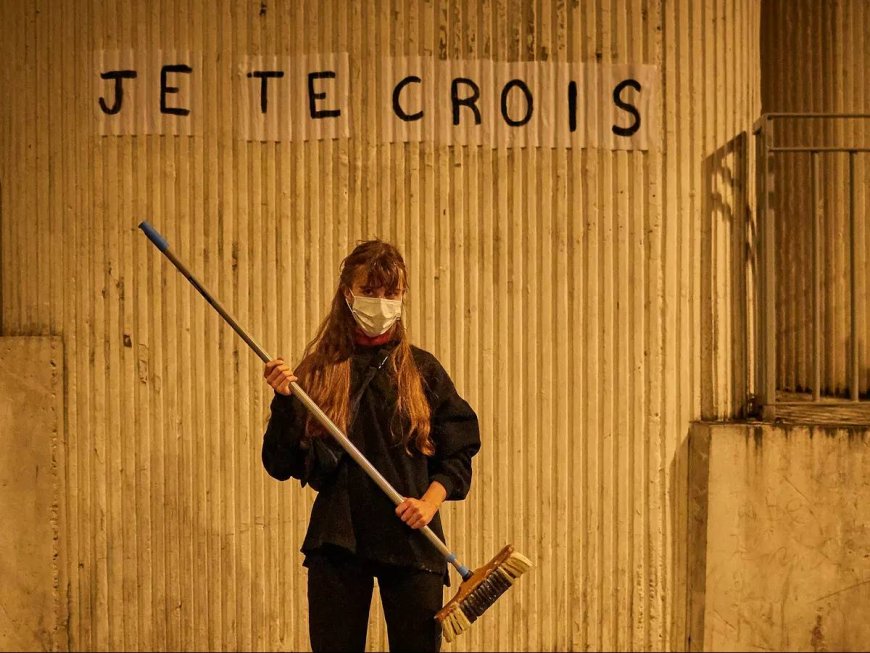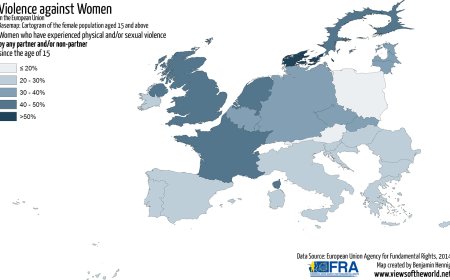Breaking the Silence: Shedding Light on France's Culture of Violence Against Women
Breaking the Silence: Shedding Light on France's Culture of Violence Against Women

The international community has established a framework of treaties and commitments aimed at upholding and safeguarding human rights. Nevertheless, it is evident that governments worldwide display varying degrees of effectiveness in implementing these obligations, as evidenced by the widespread and serious violations of human rights occurring in several European nations, including France. This is particularly paradoxical given France's historical association as the birthplace of freedom, as the country's governance exhibits a concerning inclination towards a system that perpetuates anti-human practices, with a specific focus on the violation of women's rights.
Contrary to the prevailing perception of France's leadership in terms of human rights and the country's achievements in gender equality, French society has become deeply entrenched in sexism and misogyny. The alarming increase in femicide, serves as a testament to this fact. Femicide is frequently perpetrated by current or former sexual partners, with a notable statistic indicating that women aged 65 and older constitute approximately a quarter of femicide victims.
Recent news reports regarding the violation of French women's rights have highlighted a surge in cases of violence against them, particularly since the 2019 quarantine. Official statistics reveal that one-third of women in France are subjected to violence, with more than 210,000 French women falling victim to violence each year. Shockingly, an average of one woman is assaulted every three days, resulting in the death of her husband or former partner. A survey conducted by the French public opinion institute IFOP further reveals that 14% of women consider themselves victims of domestic violence.
French women not only face the challenges posed by various forms of violence but also experience disillusionment with regards to receiving legal protection. Ernestine Ronai, the head of the department for monitoring violence against women in Saint-Sans (Seine-Saint-Denis), expressed regret over the lack of implementation of protective measures for women. She cited a "ridiculous" statistic, revealing that out of 122 individuals, only three female victims have benefited from judicial protection measures. It is imperative for the number of these sentences to increase tenfold.
The issue of domestic and social violence within the birthplace of feminism deeply wounds French women, to the extent that even the President of France campaigned on the elimination of violence against women during his election. However, due to the government's failure to eradicate this violence, he ultimately issued an apology to French women by publishing a list of women killed by their partners, thereby highlighting France's shame regarding violence against women.
In addition to the alarming number of femicide cases in France, the incidence of rape and sexual violence against women is also significant. Police reports indicate a consistent increase in complaints of sexual assault against women in France between 2016 and 2021. In 2021 alone, the French police recorded over 67,500 cases of sexual violence against women, with nearly half of them being related to sexual violence, over 45% constituting rape, and 5% involving sexual harassment. In cases of rape, approximately 47% of victims were under the age of 15 at the time of the incident. Less than 10% of sexual assaults in 2021 were committed by unknown individuals, with over 90% of attackers being known to the victims. Around 45% of rapes or attempted rapes were perpetrated by the victim's spouse or ex-spouse, while a similar percentage involved someone else known to the victim.
French women endure such conditions within a country that claims to be a democracy, where freedom, equality, and justice are the fundamental principles of the French Republic and its foundation. It is evident that the French government has a long road ahead to truly realize women's rights within society.













































